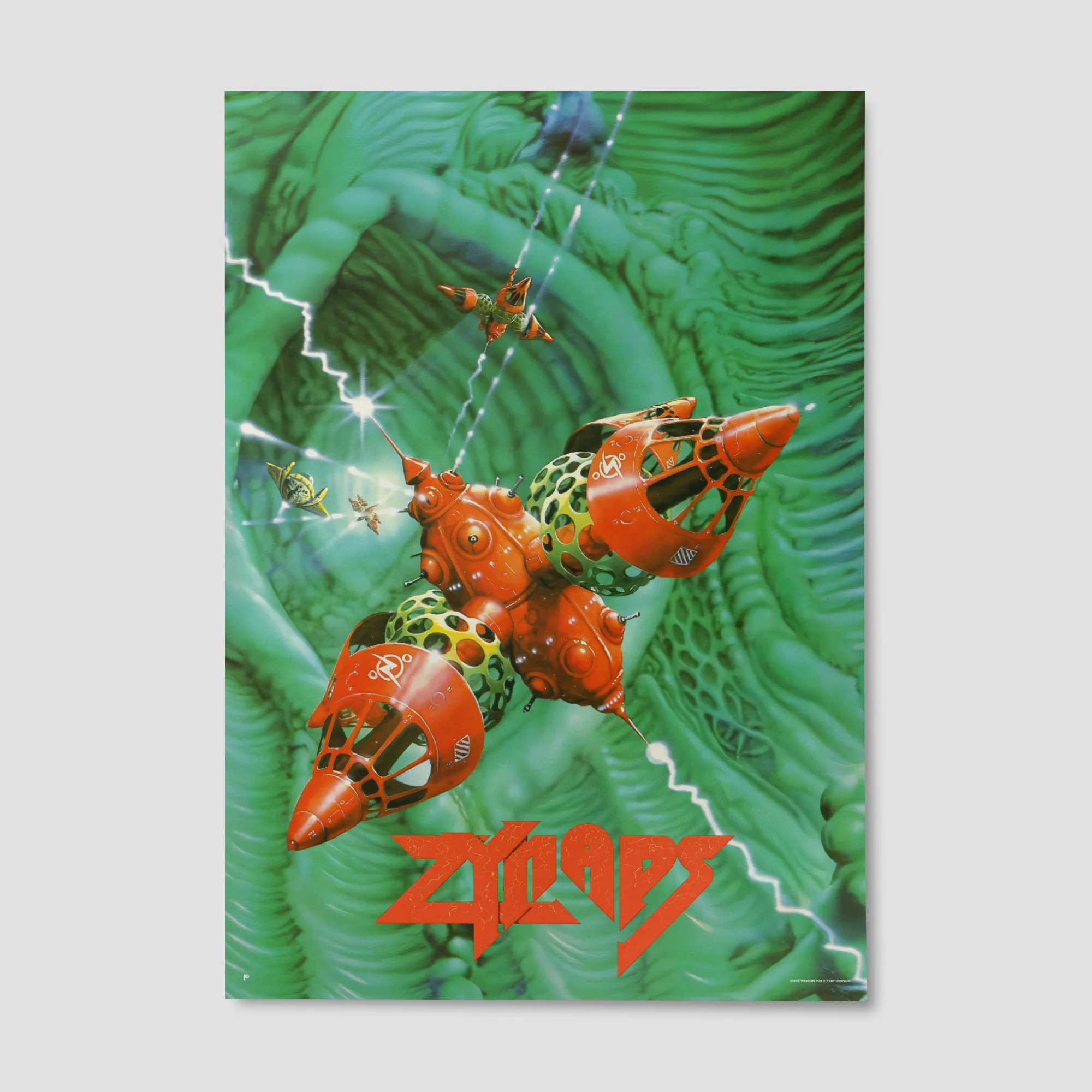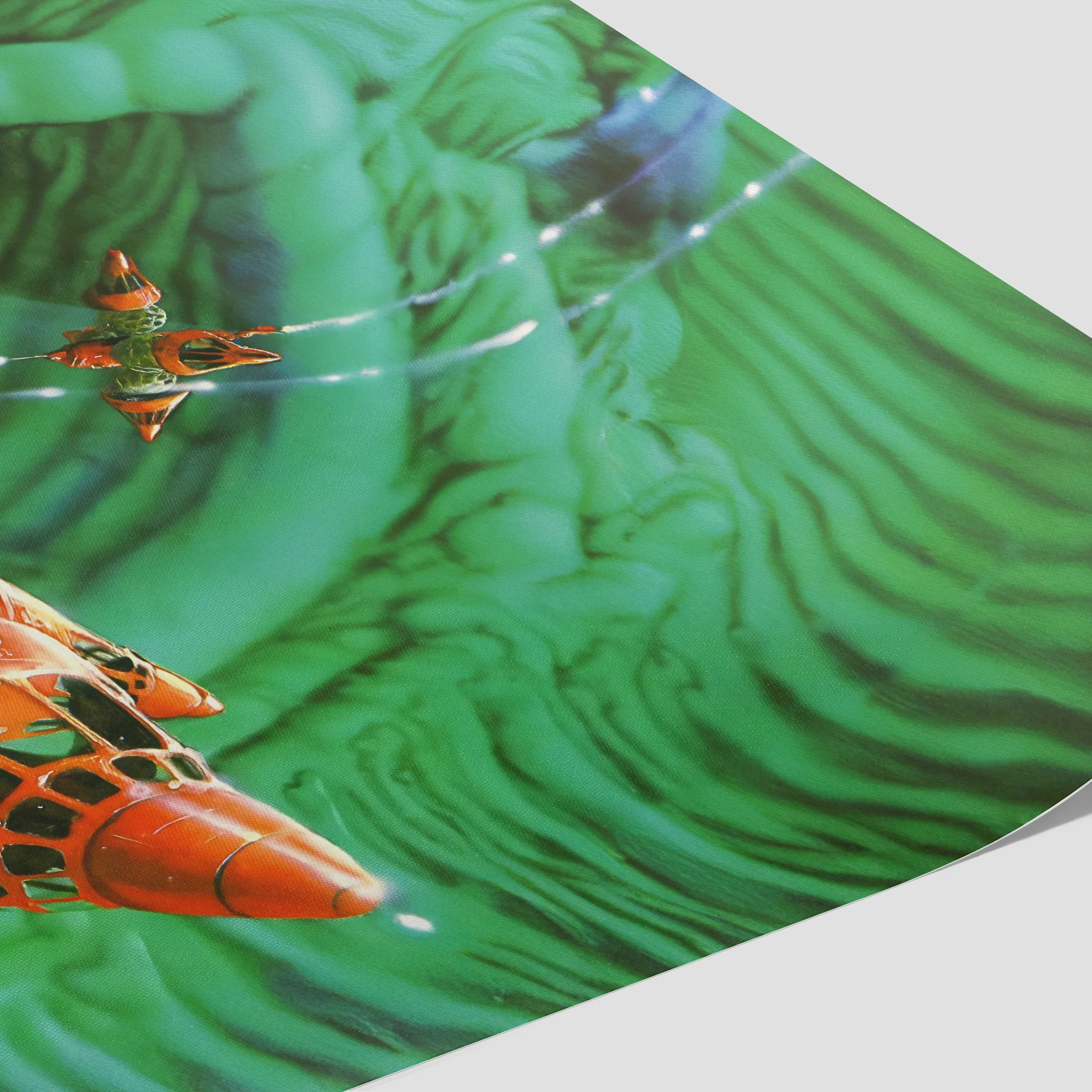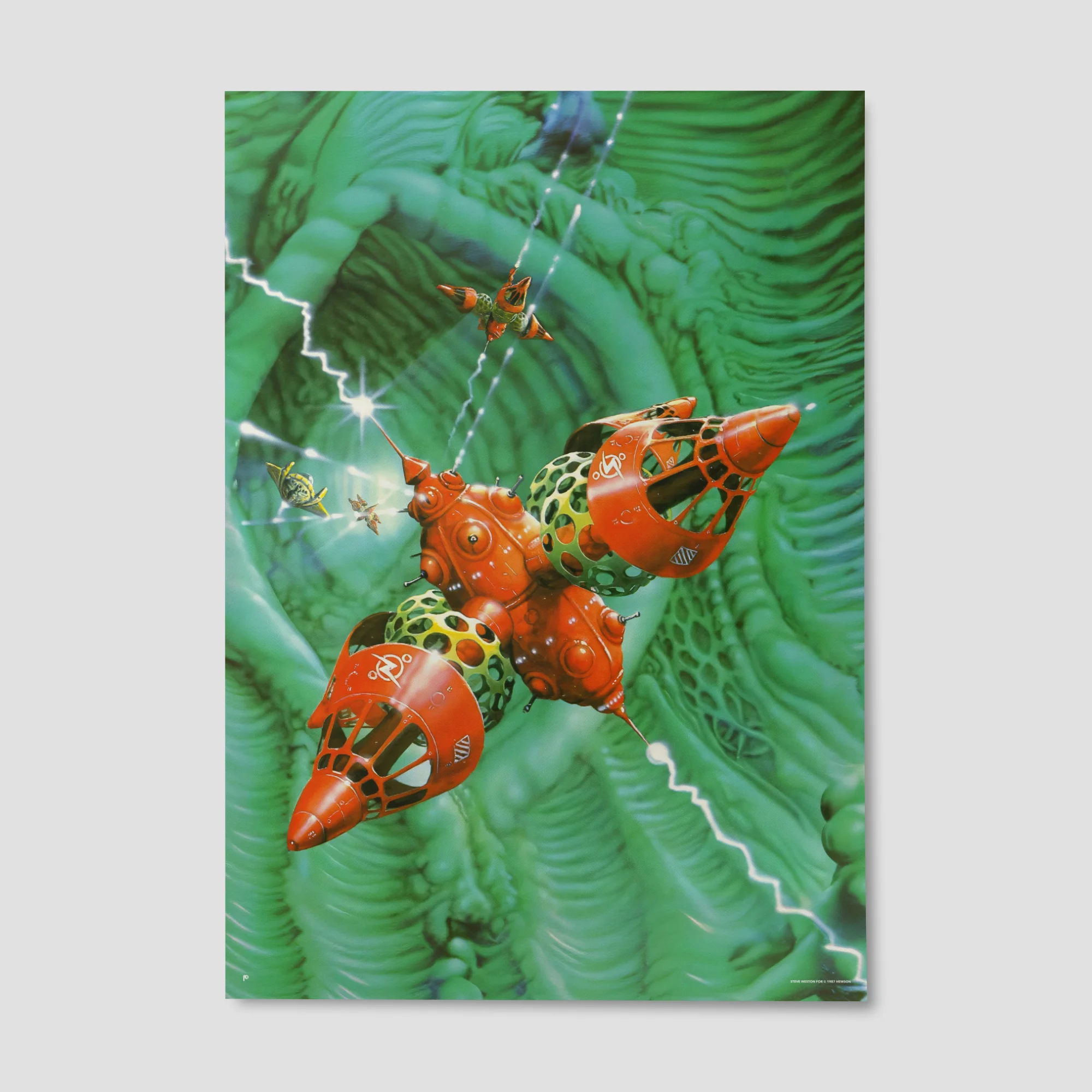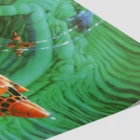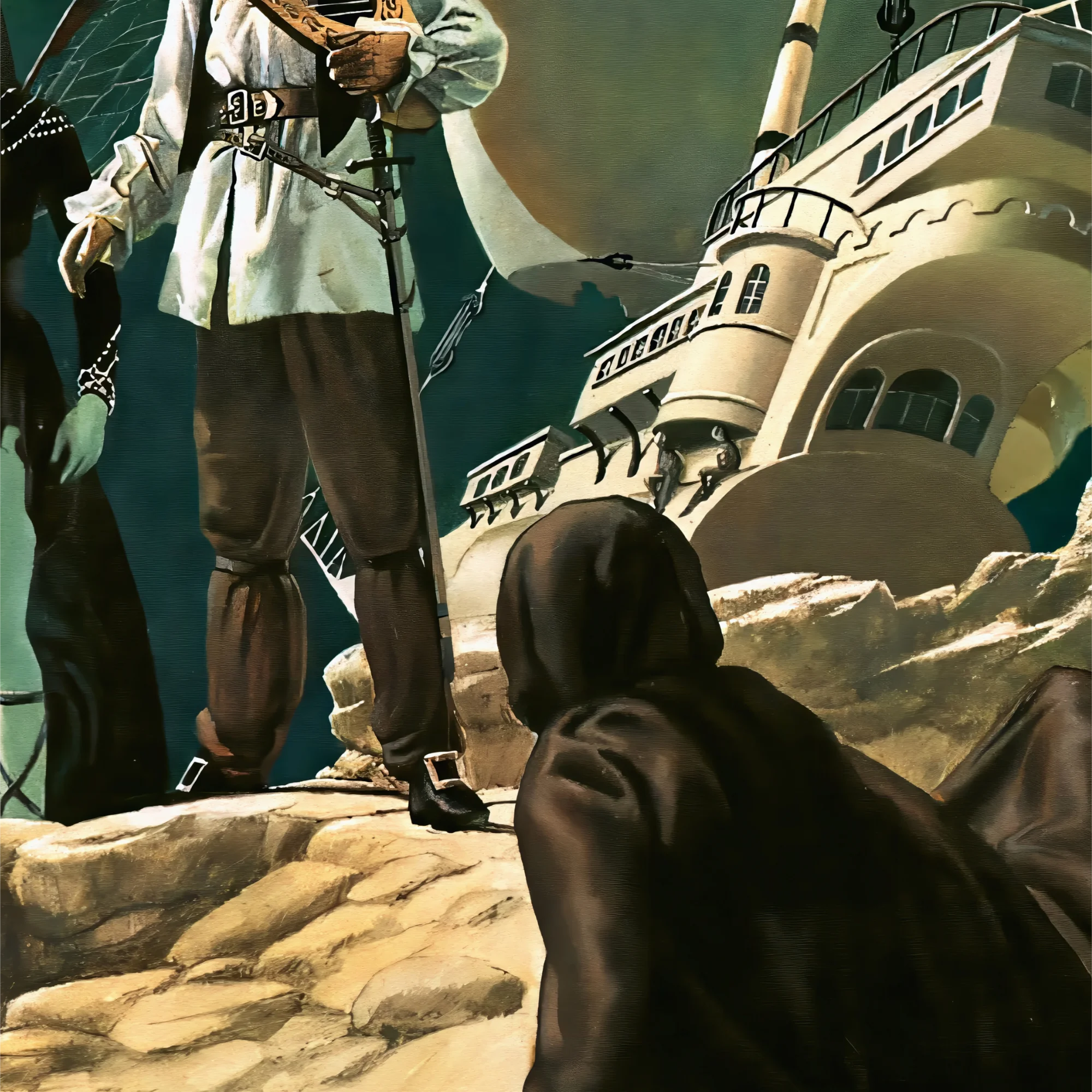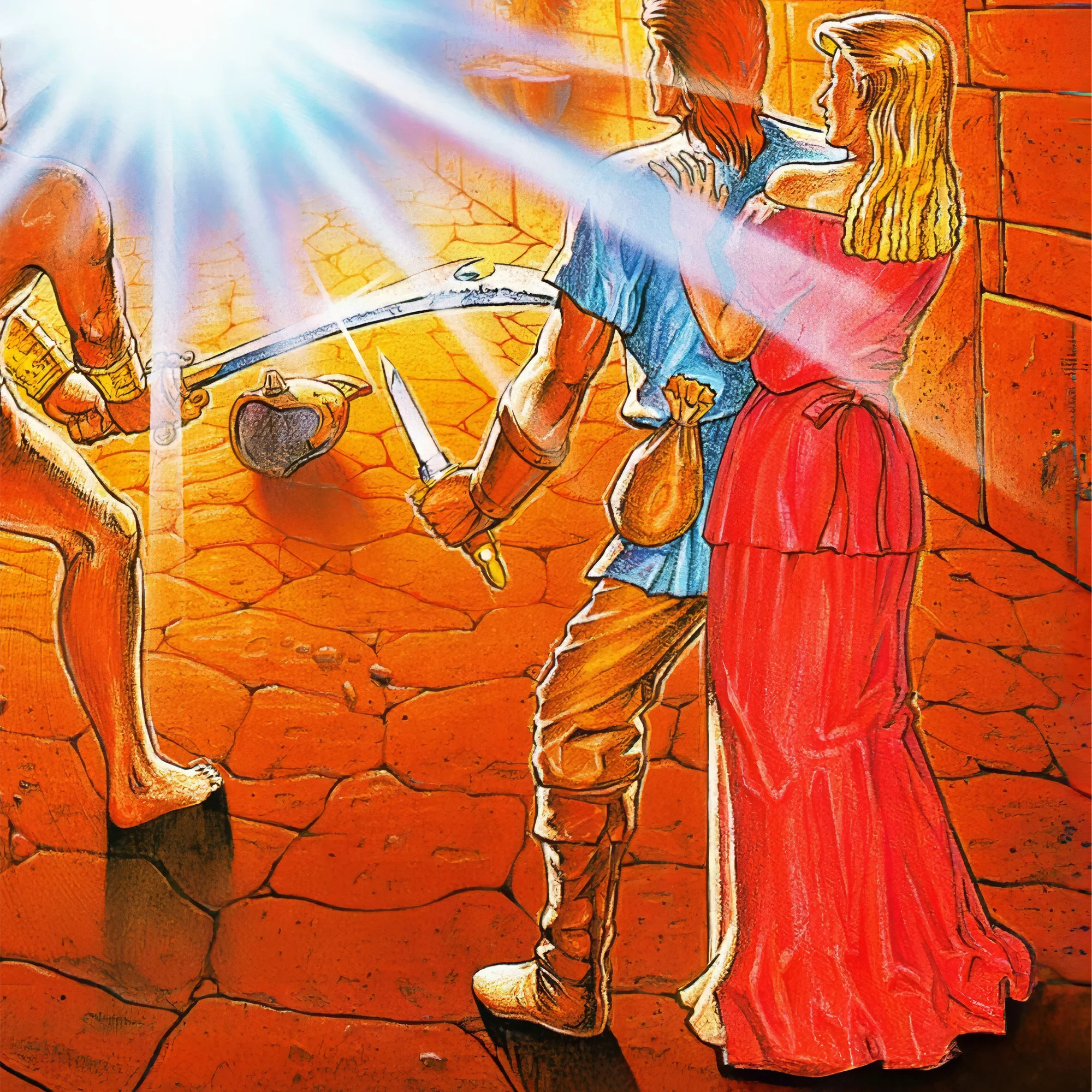Description
© 1987 Hewson Consultants
Steve Weston was a prominent British illustrator, best known for his game box art for Hewson Consultants Ltd during its peak years from 1986 to 1989. He was particularly influential in defining the visual identity of the company, illustrating most of their iconic game boxes.
Born in Bournemouth and raised in Chipping Norton, Oxfordshire, Steve developed an early passion for nature, aviation, classic cars, and mechanical artefacts. He pursued graphic design at Oxford Polytechnic, launching his career as a commercial designer and independent artist in the 1970s. His initial work included oil paintings of birds and later expanded to illustrations for various media, including album covers and magazines.
In the early 1980s, Steve gained recognition for his fantasy artwork, especially through his long-term collaboration with Irish author Anne McCaffrey, creating cover art for her fantasy novels. His airbrush technique and ability to bring mythical worlds to life earned him the nickname “The Dragon Master.”
Steve’s association with Hewson Consultants began around 1985, sparked by his local reputation and the proximity to Hewson’s headquarters in Oxfordshire. His first project for Hewson was the box art for the game “Uridium” in 1986, followed by many other titles including “Firelord,” “Alleykat,” and “Nebulus.” He was instrumental in creating the golden lizard logo for Hewson, which became a symbol of the company’s brand.
Besides his work for Hewson, Steve also illustrated for other publishers like Telecomsoft and Cascade Games Limited. Despite his versatility across different artistic techniques, including 3D modelling and computer animation later in his career, he is best remembered for his airbrush art in the 8-bit era.
Steve Weston passed away on December 29, 2010, leaving behind a legacy celebrated for its significant impact on the visual aspect of video gaming during its formative years.
Hewson Consultants, a notable British video game developer, was founded by Andrew Hewson in 1980. Initially, the company emerged from Andrew’s interest in computers, which began during his tenure at the British Museum where he learned to program. This led to the publication of his book, “Hints and Tips for the ZX80,” which catalyzed the company’s formation when bedroom coders began sending him their games, inspiring him to start publishing these games.
Hewson Consultants quickly made a name for itself in the 1980s by producing high-quality games for home computers, earning a reputation for pushing the technological boundaries of the time. The company is particularly renowned for games like “Uridium,” “Paradroid,” “Nebulus,” and “Cybernoid,” which were praised both for their innovation and their challenge. These games often received high ratings and accolades from gaming magazines, establishing Hewson as a key player in the gaming industry.
In 1991, following financial difficulties, Hewson Consultants transitioned into 21st Century Entertainment, shifting its focus primarily to pinball games, which included successful titles like “Pinball Dreams” and “Pinball Fantasies.” Despite the company’s evolution, its legacy in pioneering complex and engaging video games during the golden era of British computing remains influential.
